Planting, digging and talking - language development in the garden
- Language,
- Outdoors
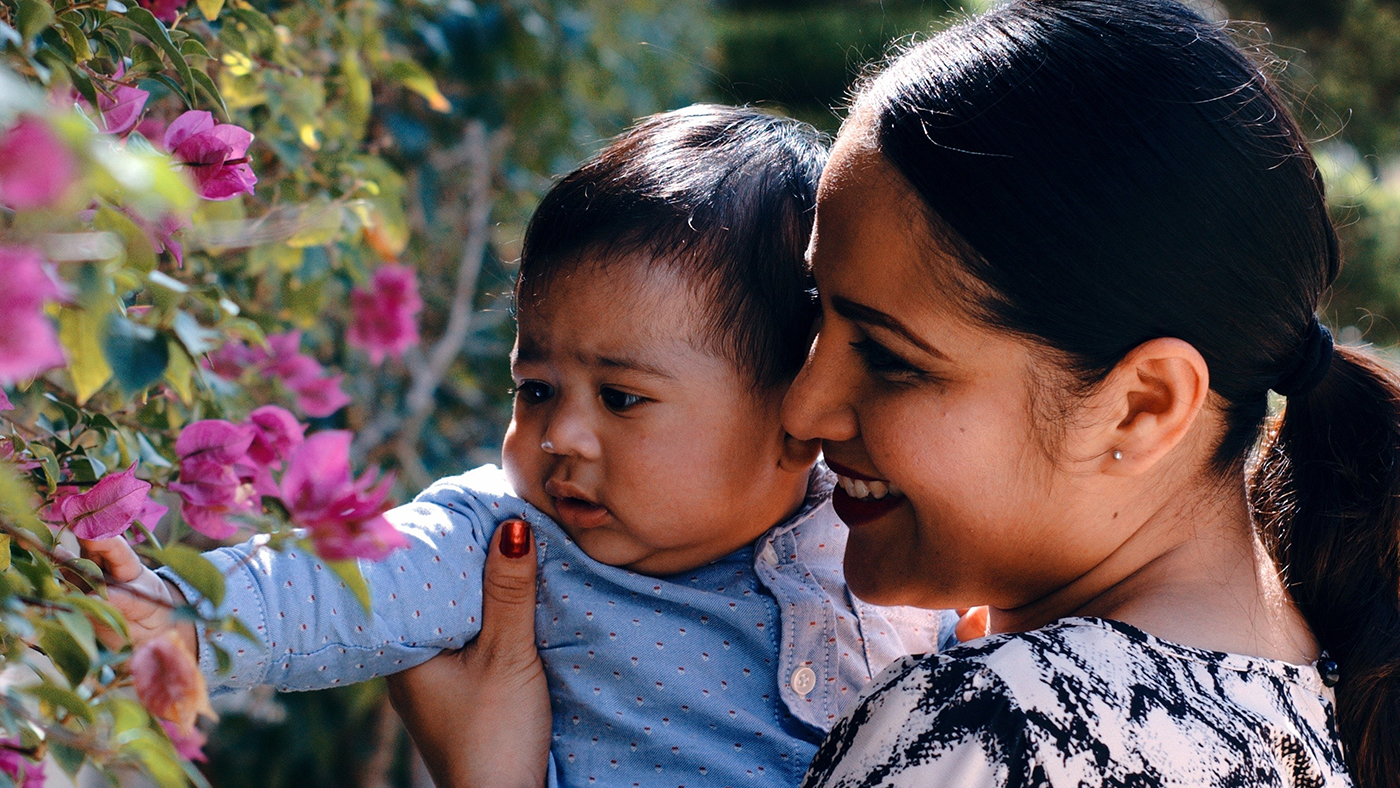
Whether you have a big garden, a small garden or no garden at all, doing some planting and digging together can be a great way to support your child’s language development. In this blog, we will explore a little more about how getting outside and gardening can give you opportunities to chat and support your child’s language development.
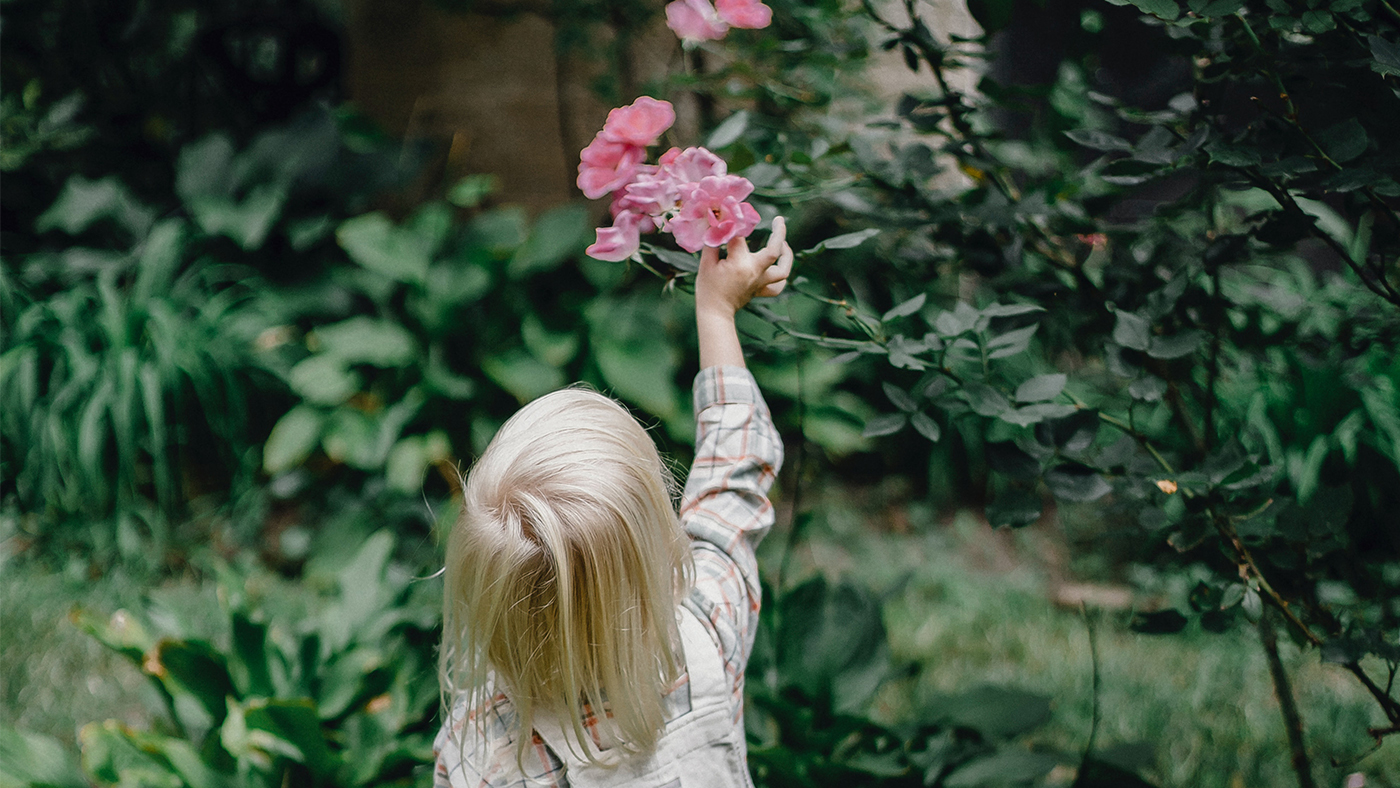
Children often like helping with real jobs, sometimes this can make things take a bit longer than they might without their help! But involving your child in the things that you are doing helps them to learn more about the world and gives them time with you, and time to chat. Talking about real things that interest your child in the moment when they can see, feel and hear them is a brilliant way to help them build their vocabulary. We know that spending time outside is good for well-being and if you decide to plant some vegetable plants or seeds, your gardening might lead to some cooking activities. All of which provide even more opportunities for enjoying time with your child and supporting their learning and development.
I want to get started, what next?
Brilliant! So, you want to start gardening with your little one, but you don’t know what you need. You could start very simply with some compost or soil, pots and seeds. If you are already a keen gardener, you might want to give your child a planter or patch of garden that they can look after with you at first.
You might find that your child is more interested in digging to begin with, so a patch of soil where they can dig and look for worms could be a good place to start if they are not very interested in planting. For younger children, you could also think about seeds that grow quite quickly, such as cress. I think lots of us remember growing these when we were younger and these seeds can be good to start with as they germinate quickly!
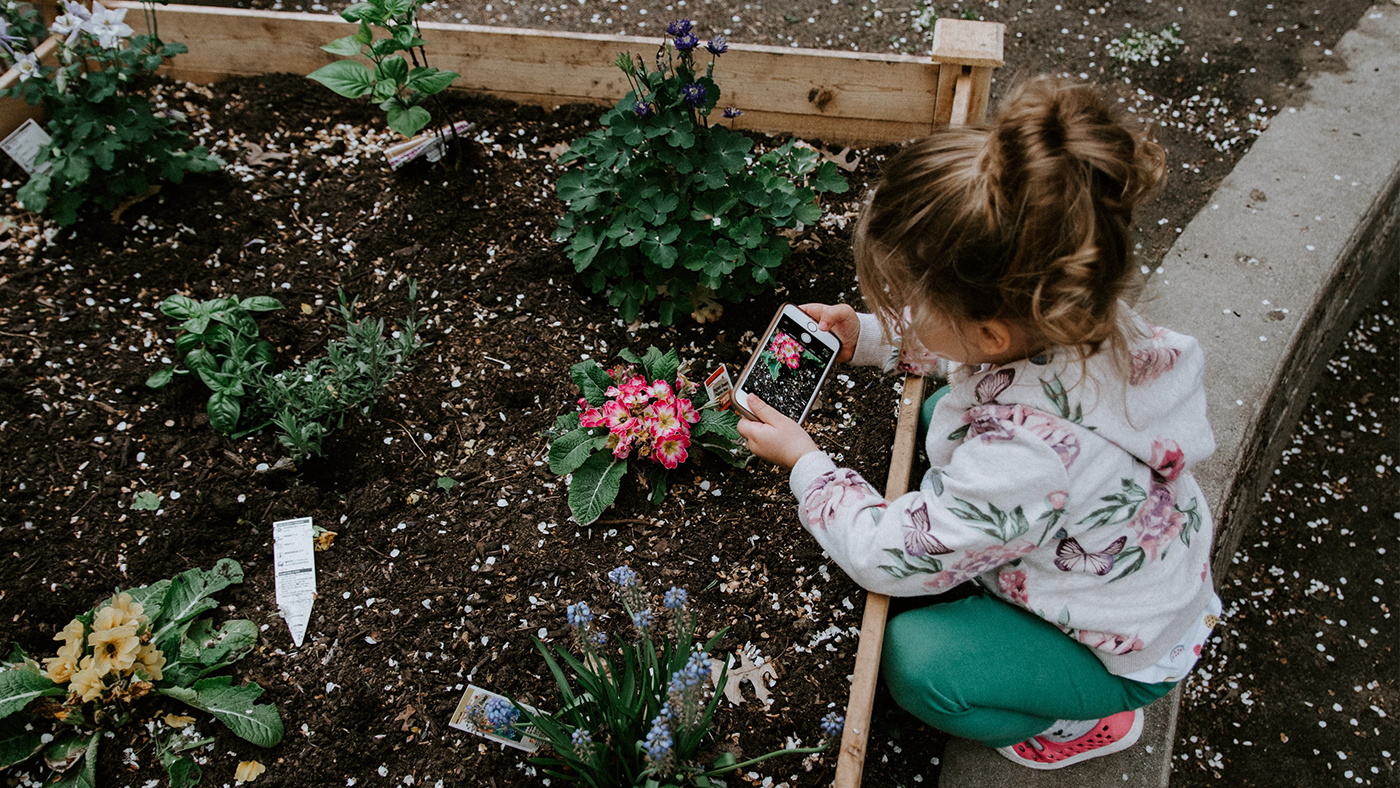
What is out here? Gardening with your baby and toddler
Your baby or toddler probably won’t be able to help with the gardening, but the garden provides a range of sensory experiences that will help them to learn about the world around them. You can comment on the things that you notice them looking at or touching, or you could let them smell some herbs and tell them the names of the herbs that they smell.
Once your baby can move, they will probably choose themselves what they look at and explore. They might be interested in digging and you might find that you spend lots of time looking at bugs and worms! All these things provide opportunities for you to respond to your child’s interests. Hearing language linked to the things that interest them is a brilliant way for them to learn new vocabulary.
Remember that your toddler might not have the awareness of their body and control of their movements to handle items gently just yet. You might spend some time talking about using gentle hands when picking up creatures or touching plants. Describing what they are doing as they do it will help them to develop their understanding of words such as gentle, dig, hold, touch and words to describe size.
Although there are some jobs that you might not want your toddler to help with yet, they could help with things like watering the plants. When you comment as they help, they will begin to link these words with what they are feeling. For example, carrying a watering can full of water is a great way to learn what the word 'heavy' means!
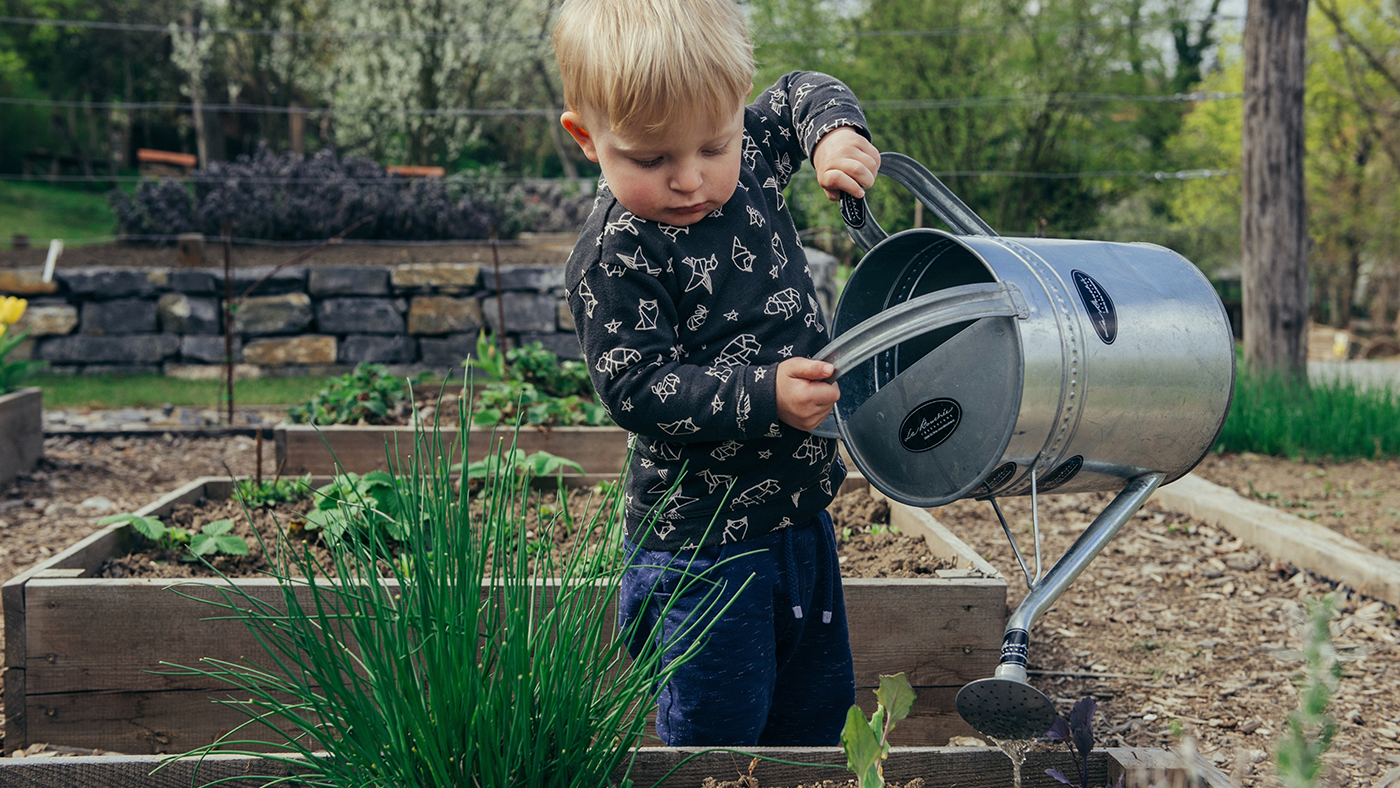
What can I do out here? Gardening with your child
When your child is a little bit older and has spent more time watching you looking after plants in the garden or at home they might want to help and you can encourage this by choosing an area of the garden that they can become in charge of. As your child’s understanding develops, helping with some planting can give them the chance to listen to, and follow instructions. They can also begin to learn about sequencing actions as they think about what they need to do next.
As your child grows keep talking to them about the things that they notice as this is a good way to keep building their vocabulary. As their interest and knowledge develops, you could also expand the vocabulary that you use to describe the insects, plants, and birds that they see. You could find a book about birds or use the internet to look up the names of the birds that you see in the garden. Your child might become interested in the tools that you use as you garden together and you could talk about the names of different tools and how they might be used. They might start to ask questions about the things that interest them and answering their questions helps them to learn more about the world. If you aren’t sure, don't be afraid to look up the answer together as this helps them to learn about acquiring knowledge and that you too are always learning.
If you don’t have a garden at home, you could perhaps help someone else with their garden. Such as at a friend’s house, an allotment or a community garden. Your child could photograph the plants that they like and then when you get home you could find out the names of their favourite plants or look through the photographs and chat about the day!
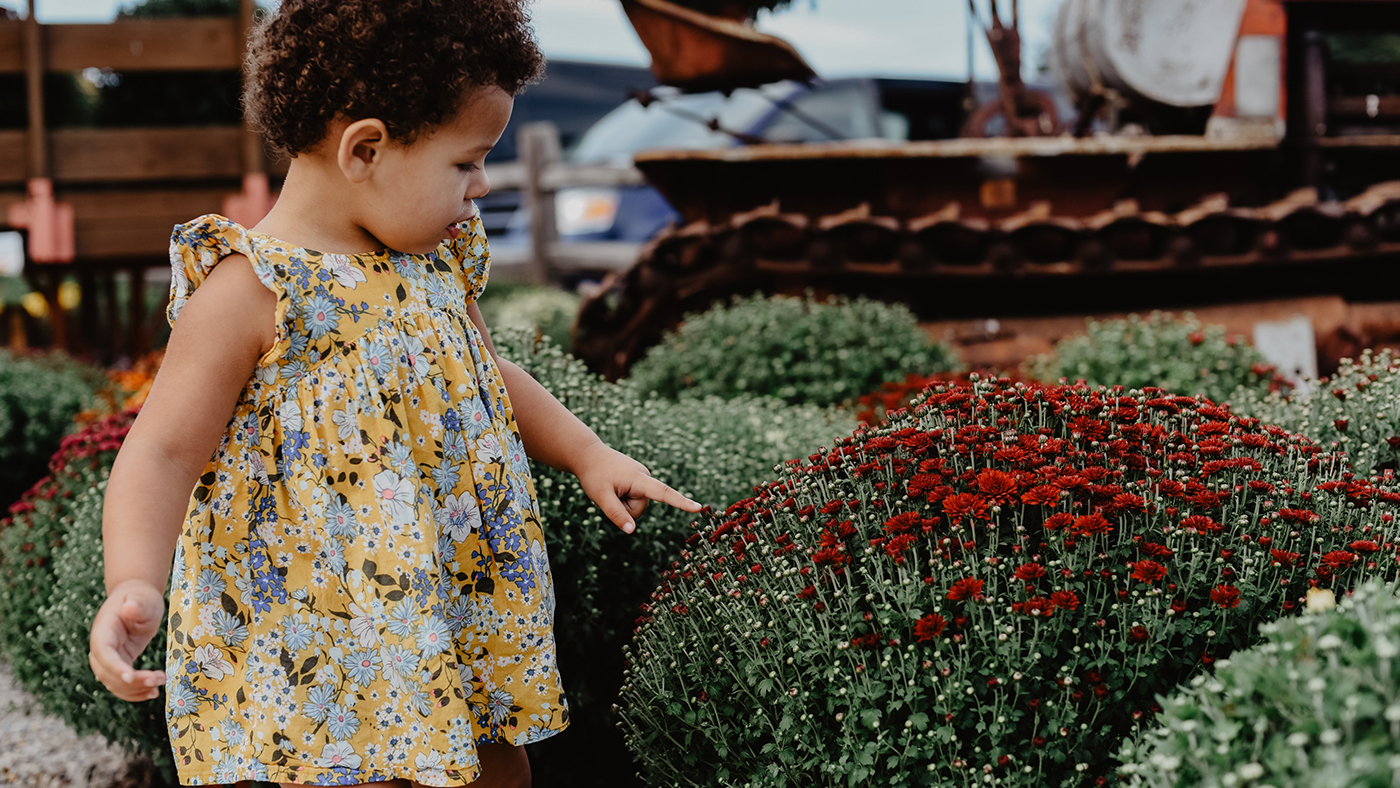
If you make labels for the seeds that you have planted, you could get your child involved by encouraging them to write some of their own labels. Alternatively, they could watch and comment as you write the labels. Seeing writing being used for a particular purpose will help them to begin to link the words they say with print. If they are beginning to recognise some letters, it could be a time to chat about them too.
Enjoy your gardening
You might not be growing prize-winning vegetables just yet. But spending time together digging, planting and caring for your garden will give lots of opportunities to listen and chat. Your child might be more interested in the mud or insects than the plants at first. But by noticing what interests them and responding, you will support them to be curious and to learn the words to talk about their interests.